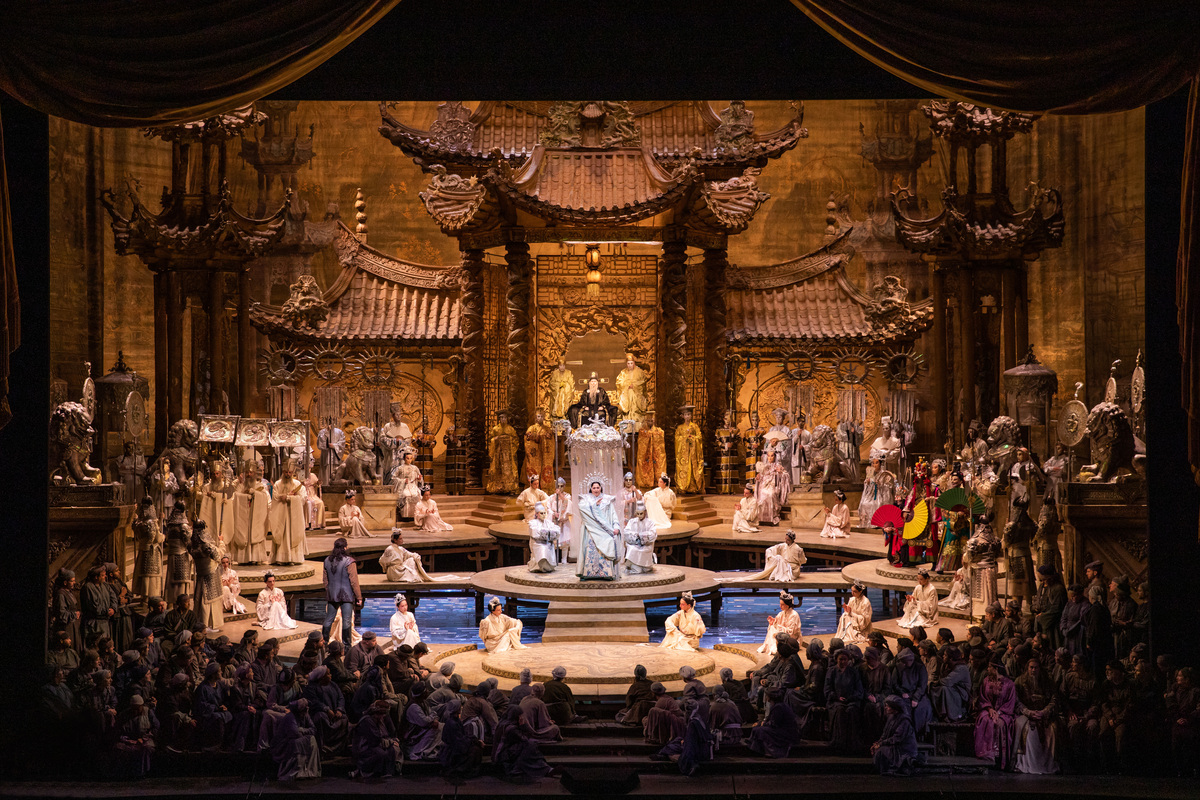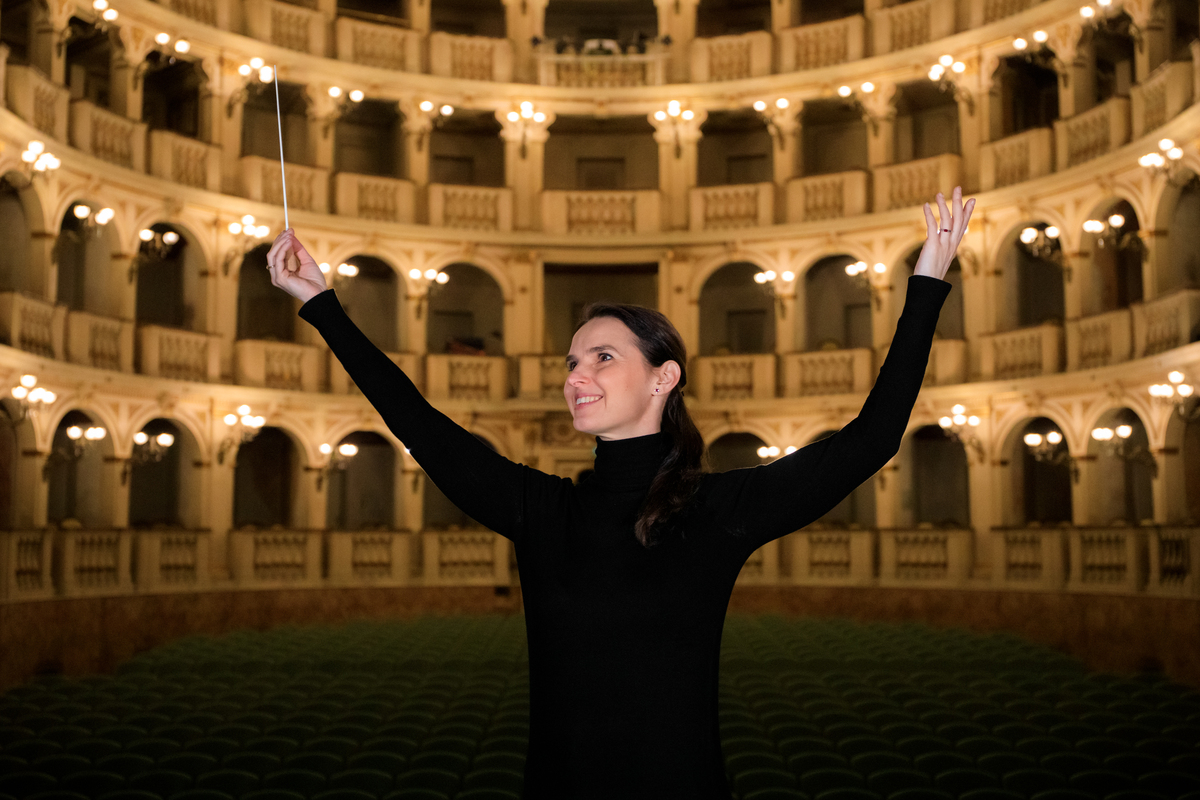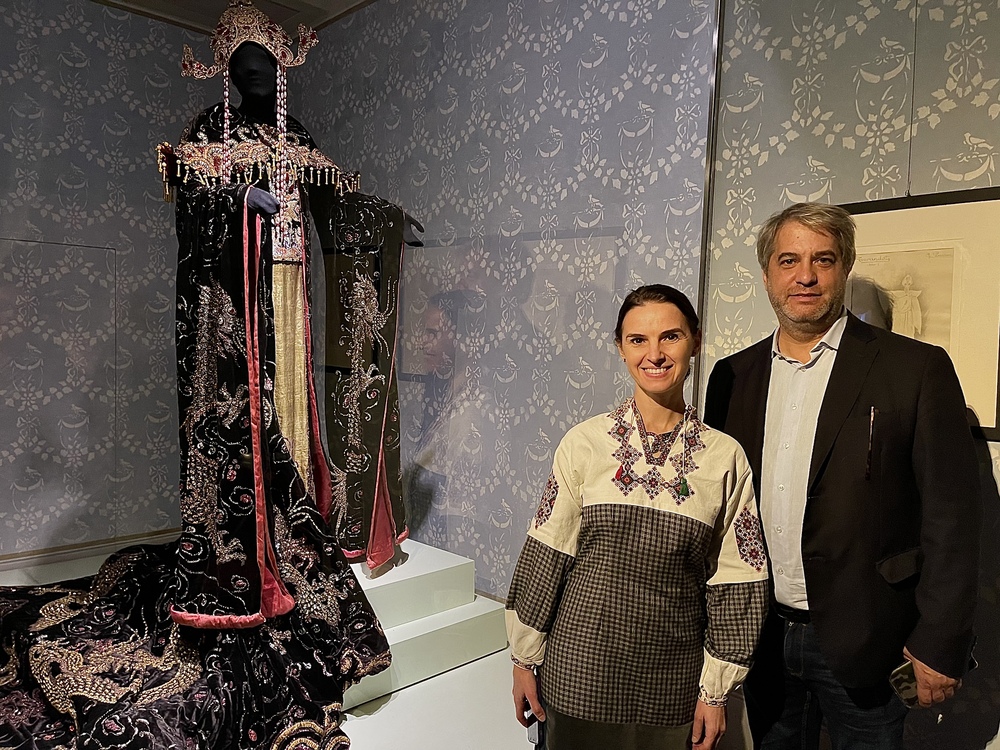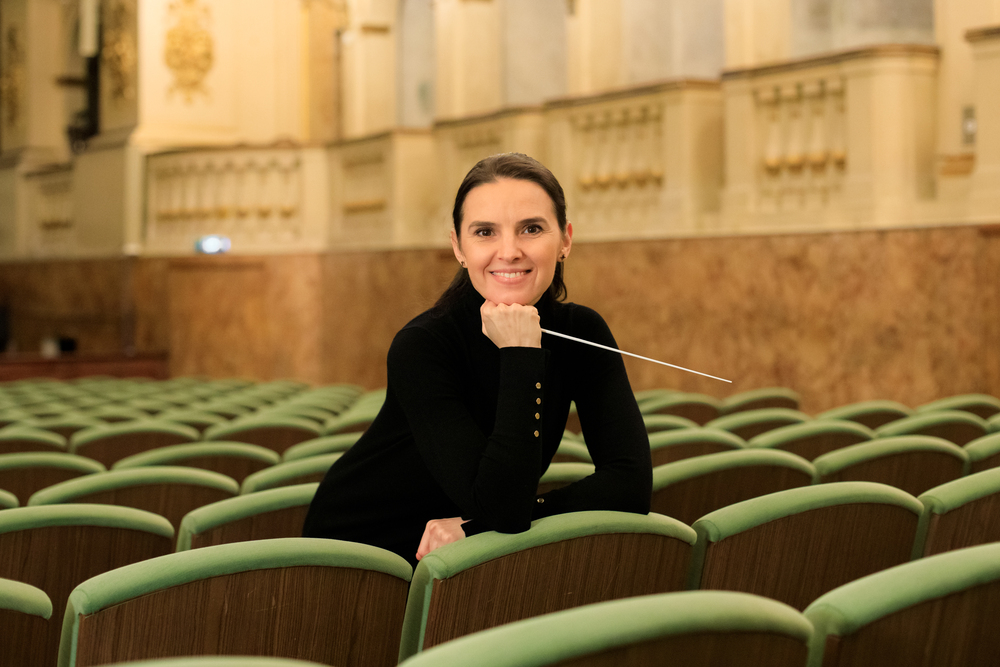Oksana Lyniv takes time off from the rehearsals for Turandot to talk about her debut at the Met, Puccini’s music, the war, and her career as a prominent woman conductor. Puccini’s last opera will be staged – from Wednesday 28 February – in the gigantic Zeffirelli production from 1988. The 46-year-old Ukrainian conductor, also the first woman to be musical director of a theatre in Italy, at the Comunale in Bologna, was on the podium with this score two years ago at the Teatro dell’Opera in Rome.
At the time, the Russian invasion of Ukraine had just started. Now it’s entered its third year.
“And playing the same music, I connect to my emotional memory. Nobody could have imagined two years ago that the war would still go on, it’s terribly difficult to live in this stress and continue to work, and I also have to ask myself what the role of an artist is. I will be the first Ukrainian conductor at the Metropolitan, the first one to have this honor. It’s a great responsibility but at the same time I’m remembering all my colleagues in Ukraine who try to work in terrible conditions. Because art is even more important in dark times, it helps all of us to survive even when you are faced with dead children, war crimes, and families losing their houses.”

Puccini never completed Turandot and several composers have tried their hand at the ending.
“Here in New York, I am conducting the production from 1988 and we are using the original Franco Alfano ending. But in Rome with the Chinese artist Ai Wei Wei signing the staging, we decided to finish with Liù’s death, where Puccini stopped composing. It was the first months of the war and finishing with a death march, that’s what I felt. But it’s also a fitting finale for the whole opera because it represents Puccini’s difficulties with this masterpiece.”
You have worked on many Puccini’s scores both in Ukraine and in Italy, how do you read this last one?
“I think my debut in Turandot was in 2010 when I conducted the second act in the Royal Opera in Odessa. In Odessa I also conducted Tosca, Butterfly, and Bohème. We are talking about a composer who in thirty years knew enormous international success and became immensely rich. Just two weeks ago I had my premiere of Manon Lescaut in Bologna, the first opera that brought him fame. He was 30, he was experimenting with orchestration and as a a great Wagnerian admirer, with leitmotif and dramatic dialogues moving to arioso. Now I work on Turandot which he started to write when he was more than 60. The comparison is stunning. Puccini was a viveur, an Italian macho also, he loved the good life, women, elegant clothes and fashion accessories and he always had great cars in his garage. He was a millionaire from the theatres performing his works in London, Hamburg, Vienna, Munich, Paris… there is a delightful audio of one of his two visits in New York.
But at this point, his fame could not give him the zest for life that had always pushed him to compose. We know from his letters that in the last period of his life he suffered from a terrible age crisis. He kept traveling to listen to the new repertoire by his colleagues. So in Florence he met Schoenberg who gave him the score of Pierrot Lunaire to follow during the performance. He saw all of Wagner’s operas, Tristan and Parsifal were his favorite, he also went to Bayreuth. He listened to the Sacre du Printemps by Stravinsky in Paris. He was faced with the new Vienna school.

And this we can feel in the score of Turandot. A man who was losing interest in life, and he tried to cover this with longer travels and better cars. He also felt that the art was continuously developing, and he could not find a language modern enough to stay on top of it – his operas were already becoming historical. In his letters in those years he was always complaining: I don’t know how to proceed with this opera, I have to find something new, even, “I hate my previous music”. Also, his health was deteriorating: although he visited many doctors in Italy and Germany and France, the pain he had in his throat went undiagnosed until it was too late on that fatal trip to Bruxelles.
So the Turandot score remains unfinished and it is to me very symbolic. The cruelty of Turandot shows that he felt something similar in his life. Throughout the first act you can feel in your body that we are confronted with a death machine.”
You were the first woman conductor on the podium at the Bayreuth festival, the first musical director of a major theatre in Italy. A thing that would have been impossible just twenty years ago.
“We see so many young great woman conductors creating a new normality. For me, for my generation, it was like breaking the seals. It’s also a great responsibility because you become a sort of role model. But my desire to work came from the music. I admired Puccini as a student, when I first listened to Madama Butterfly with the piano score in my hands in the opera house I was crying, dreaming of being a professional conductor. My father told me ‘you should be a music teacher like everybody else, are you crazy? Nobody will let you conduct an orchestra’. But I was listening to the music and thinking how wonderful it would be when I would conduct it. I was inside the score, it was my way to survive. Just to be in the music, to believe that when you want something with your whole heart… step by step here I am now.”

Did living in Italy give you a different perspective on Puccini?
“I visited his house in Torre del Lago, Viareggio, where Puccini built the villa where he lived out his last years, those when he was composing Turandot, because I wanted to understand his time and his lifestyle. I visited the house where he was born in Lucca which now is a museum, and they have the first costume of Turandot in New York, from 1926. I’m very lucky to be connected to one of the great lyric entities and the great orchestra of the Teatro Comunale di Bologna.
This is the year of Puccini, 100 tears after his death. We were on tour in Japan with Tosca and we’ll bring it to Wiesbaden. Also, I’m starting my first Wagner’s Ring in Bologna this year, in concerto form, two operas in 2024 and the other two in 2025. Bologna was the first city in Italy to perform operas by Wagner… it’s a city with an incredible musical tradition. We are also open to symphonic music to the world and are performing the world premieres of Ukrainian composers.”
You just released the video from the première of the cantata Father’s Book, which you initiated.
“The author of the texts and children’s poems, Volodymyr Vakulenko, was a single father of a son with autism spectrum disorder. Despite this fact, he was abducted, tortured, and killed in the Russian occupation. After his tragic death, I commissioned this Cantata from the composer Evgen Orkin. A particularly poignant fact is that all the performers, including the youth orchestra I founded and the two children’s choirs, have been severely affected by the war themselves. Many have already lost their fathers or homes, and many are displaced.
It’s very difficult to remain human and keep human ideals, not to become animals who only want to kill in revenge. Through art, we can keep our soul and try to continue to see this light. This is Turandot. When Turandot asks Liù, who is resisting torture in order not to reveal Calaf’s name, “who gives you such force?”, she answers “Love”. You respond with love to violence. It does not mean that we should not fight, but that we have to try not to give up to make this world better.”

Puccini’s Turandot returns to the Met on February 28, with Maestro Oksana Lyniv, soprano Elena Pankratova in the title role, and soprano Juliana Grigoryan in the role of Liù. Tenor SeokJong Baek sings the role of Calàf.
Wednesday, February 28, at 7:30PM
Saturday, March 2, at 8PM
Tuesday, March 5, at 7PM
Friday, March 8, at 7PM
Wednesday, March 13, at 7PM
Saturday, March 16, at 12PM
Wednesday, March 20, at 7:30PM
Saturday, March 23, at 8PM
Wednesday, April 3, at 7PM
Saturday, April 6, at 1PM
Thursday, April 11, at 7:30PM
Sunday, April 14, at 3PM
Friday, April 19, at 7:30PM












